Baseball History Comes Alive Now Ranked #2 by Feedspot Among All Internet Baseball History Websites and Blogs!
Guest Submissions from Our Readers Always Welcome!
Judge Kensesaw Mountain Landis Photo Gallery
Click on any image below to see photos in full size and to start Photo Gallery:
Judge Landis Hired by Major League Baseball. November 12, 1920!
“Baseball is something more than a game to an American boy; it is his training field for life’s work. Destroy his faith in its squareness and honesty and you have destroyed something more; you have planted suspicion of all things in his heart.” –Judge Kenesaw Mountain Landis
Ninety-six years ago today, Major League Baseball hired Judge Kenesaw Mountain Landis to be the game’s first commissioner. This was an effort by the owners to restore baseball’s credibility after it was severely tarnished by the 1919 Black Sox Scandal.
We all know Landis meted out severe justice for the “Eight Men Out,” – some say too severe – but how many of you are aware of another scandal that rocked the game a few years later, and involved some of the games’ biggest stars? Read on to find out more…
Although Tigers’ manager Ty Cobb seems pleased to meet new commissioner, Judge Kennesaw Mountain Landis in the featured photo below, taken on April 29, 1921, their relationship would quickly sour.
In 1926 Cobb, Tris Speaker and “Smoky” Joe Wood, were accused by former pitcher Dutch Leonard of plotting to fix a Detroit-Cleveland game played on September 25, 1919. The thrown game would allow the Tigers to collect money for finishing in third place instead of fourth. In addition, Leonard accused the plotters of betting $2000 on the game. The allegations existed in the form of letters in Leonard’s possession that passed among the three. They were presented to American League president, Ban Johnson.
The surly Leonard was known to hold a beef against Cobb and Speaker, so were the allegations true…or just sour grapes? He thought Cobb had bad-mouthed him around the league so that when Cobb put him on waivers, no one picked him up. He was also ticked with Speaker, who had been his friend and teammate on the 1913-’15 Red Sox, for not picking up his wavier.
After hearing the allegations, Johnson insisted that Cobb and Speaker retire immediately; but because of the stature of the players the American League owners decided the matter should be brought before Judge Landis. After studying the facts, Landis announced that the two stars were “permitted to resign.” An agreement was worked out so that Cobb and Speaker would step down as managers of their clubs without any fanfare or publicity.
As news of the scandal was made public, Cobb, who always proclaimed his innocence, became determined to clear his name. He had many friends in high places and was prepared to use political influence to reverse Landis’ decision. As public sentiment moved in favor of the two stars, Landis reopened the case. Following a hearing with all parties involved, Landis cited a lack of evidence and publicly exonerated Cobb and Speaker. In addition, Dutch Leonard’s refusal to leave California to testify in the matter broke the case in favor of the accused.
Did Landis act properly…or did the iron-fisted commissioner buckle to political pressure brought by two stars? No one knows for sure. Despite the ruling, Cobb always felt that he had been mistreated by Landis in the matter and held a longtime grudge. Even years later, at the 1939 dedication of the Baseball Hall of Fame, Cobb arrived late on purpose just so he didn’t have to shake the commissioner’s hand or have his picture taken with him.
Gary Livacari
Photo Credits: All found on Google search
Information: Excerpts edited from the Kensesaw Mountain Landis Wikipedia page.
Subscribe to my blog for automatic updates and Free Bonus Reports: “Memorable World Series Moments” and “Gary’s Handy Dandy World Series Reference Guide.”
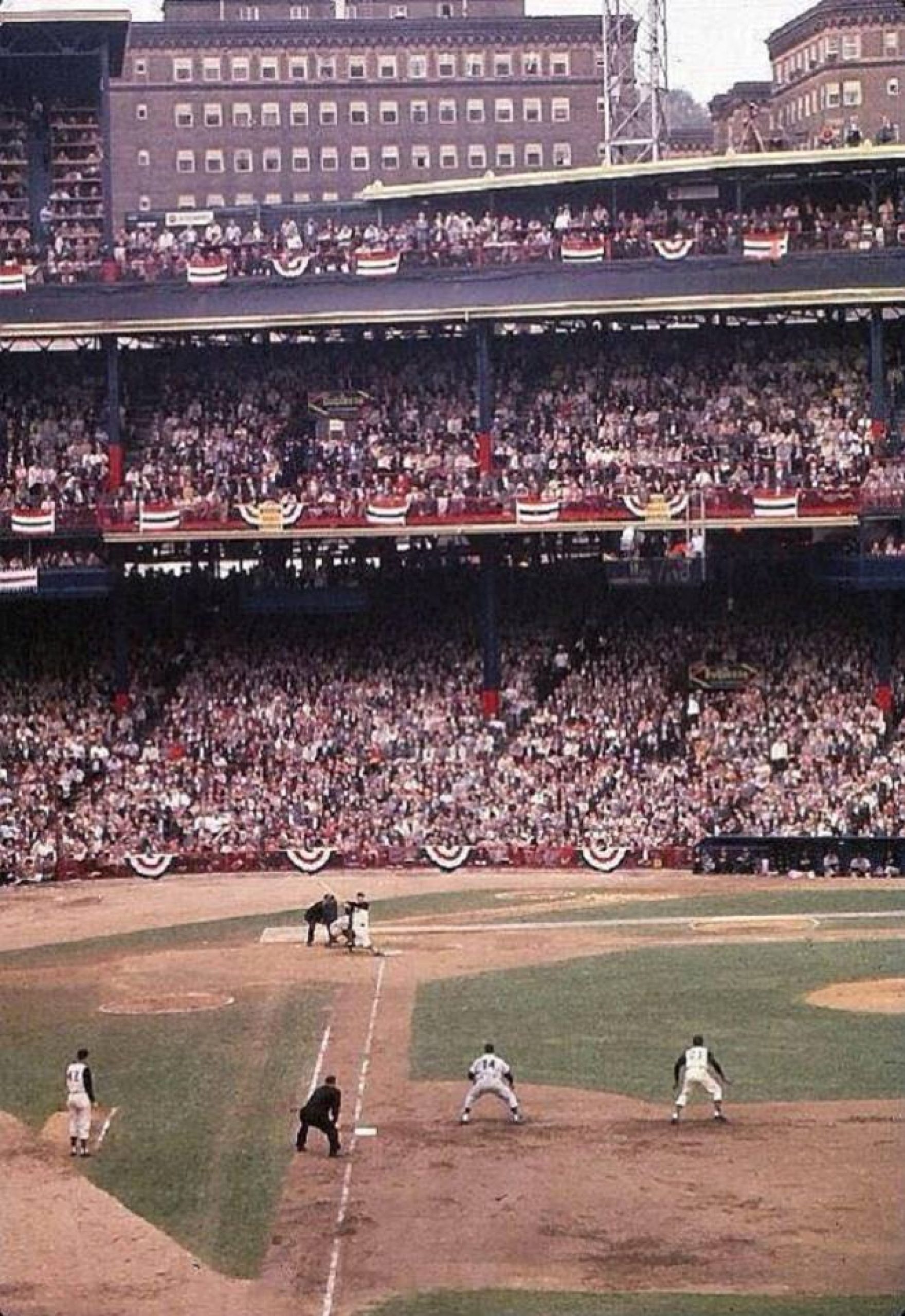
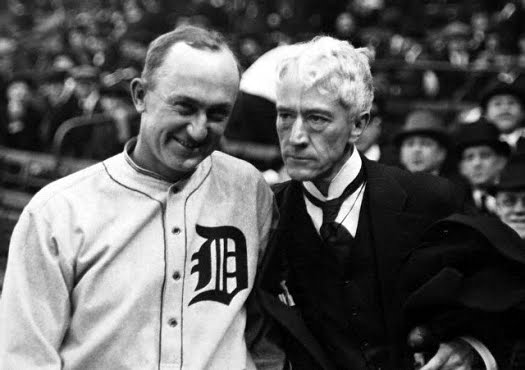
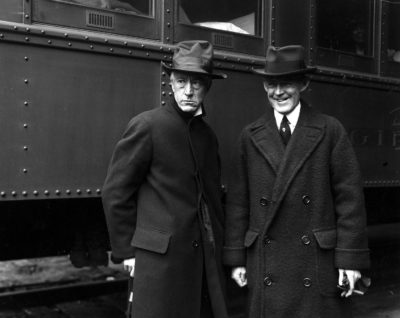
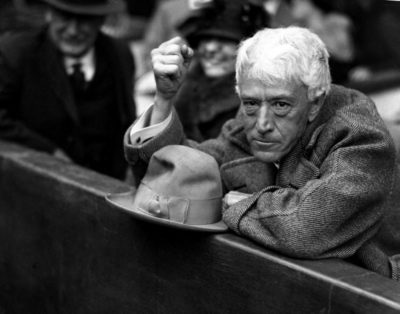
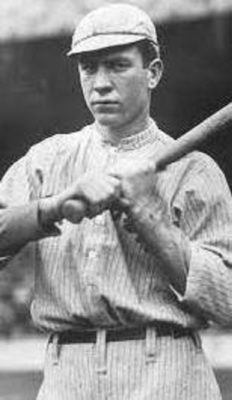
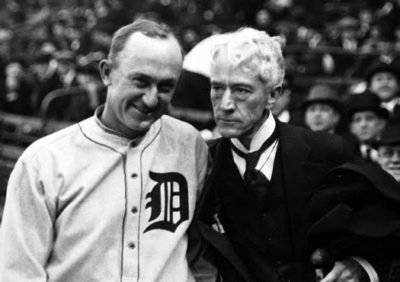
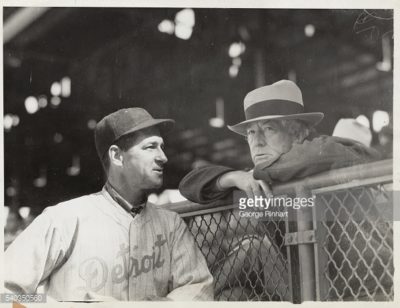
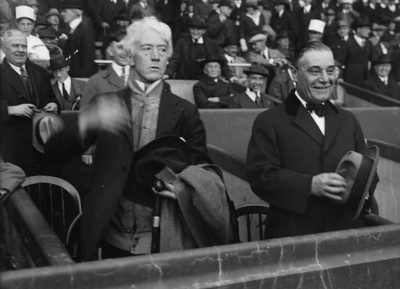
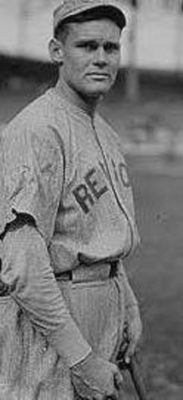
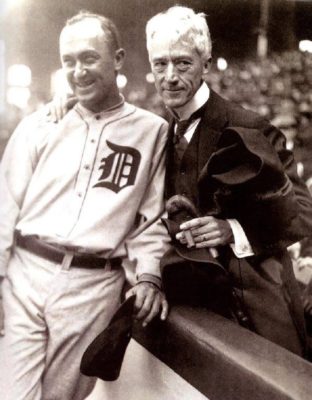
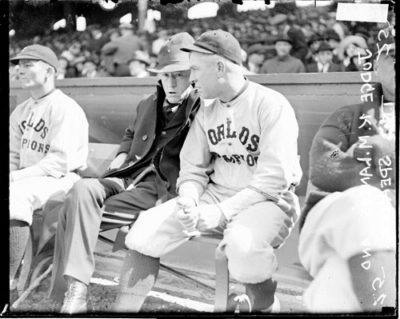
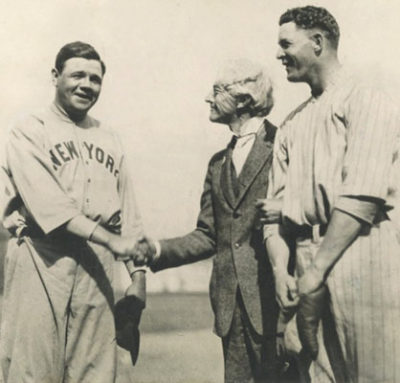
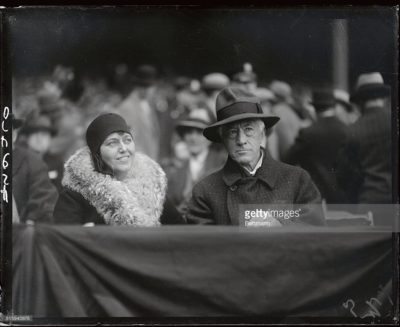
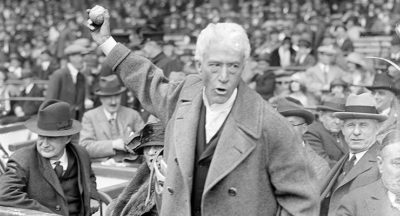
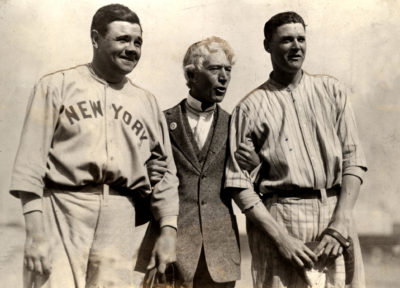
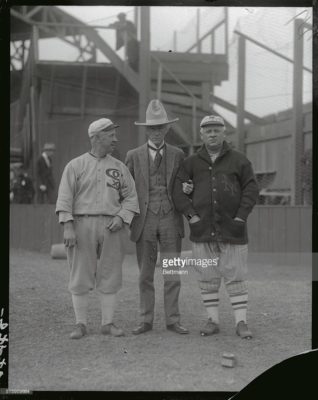
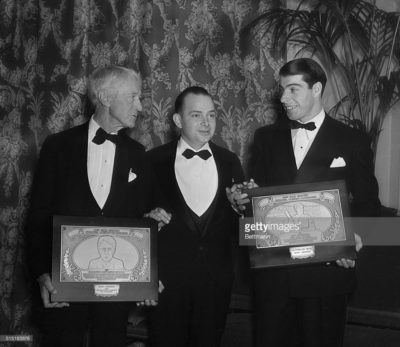
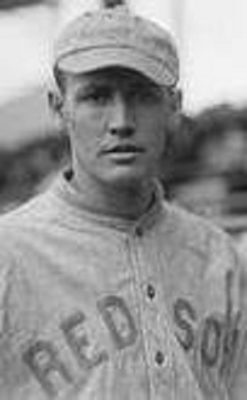
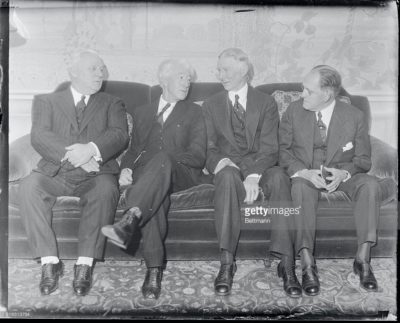
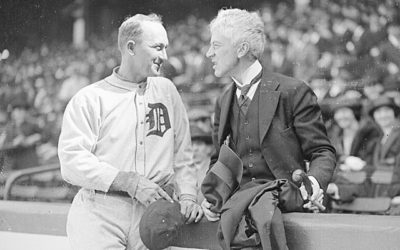
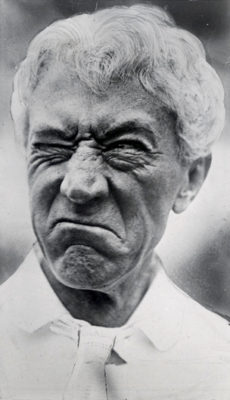
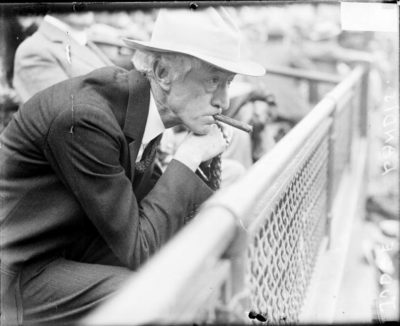
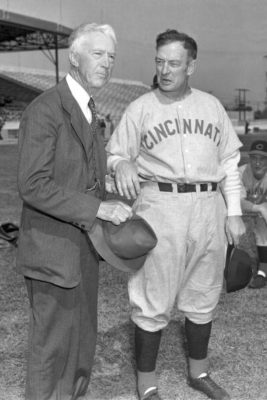
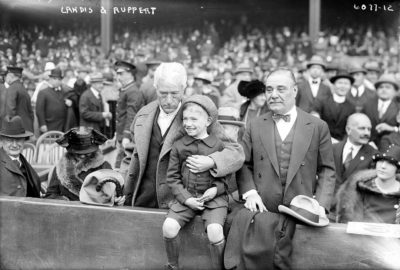
Another terrific story. Keep ’em coming, Gary! And thanks!
I always thought of Dutch Leonard as the all around bad guy and villain of the story. I have to say that I have revised my thinking when I saw he was cited in:
Infamy: The Shocking Story of the Japanese American Internment in World War II
By Richard Reeves
I am paraphrasing:
“Former major league pitcher Hubert “Dutch” Leonard agreed to manage a farm for a family of Japanese internees during their absence and turned over $20,000 (in 1945 dollars) upon their return. There were few such instances.”
Perhaps he changed over the years or was he railroaded by the stardom of Cobb and Speaker?
Thanks Ed, that’s very interesting. I’ll also have to revise my thinking about Dutch Leonard. I might repost this one about Dutch Leonard with an update from the info you gave me. If you have any more on this, please let me know. Thanks- Gary